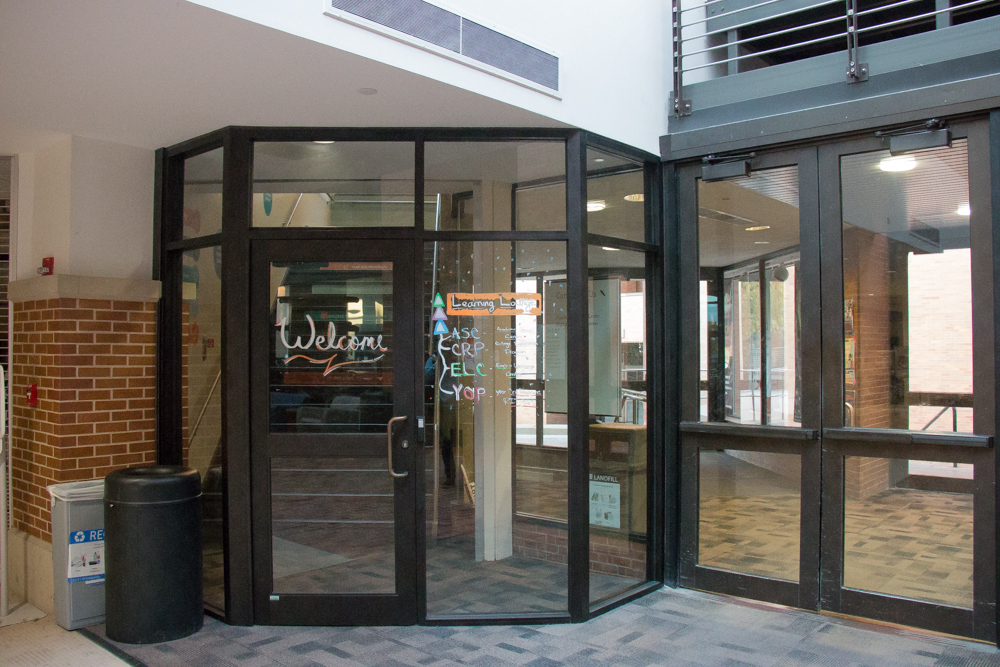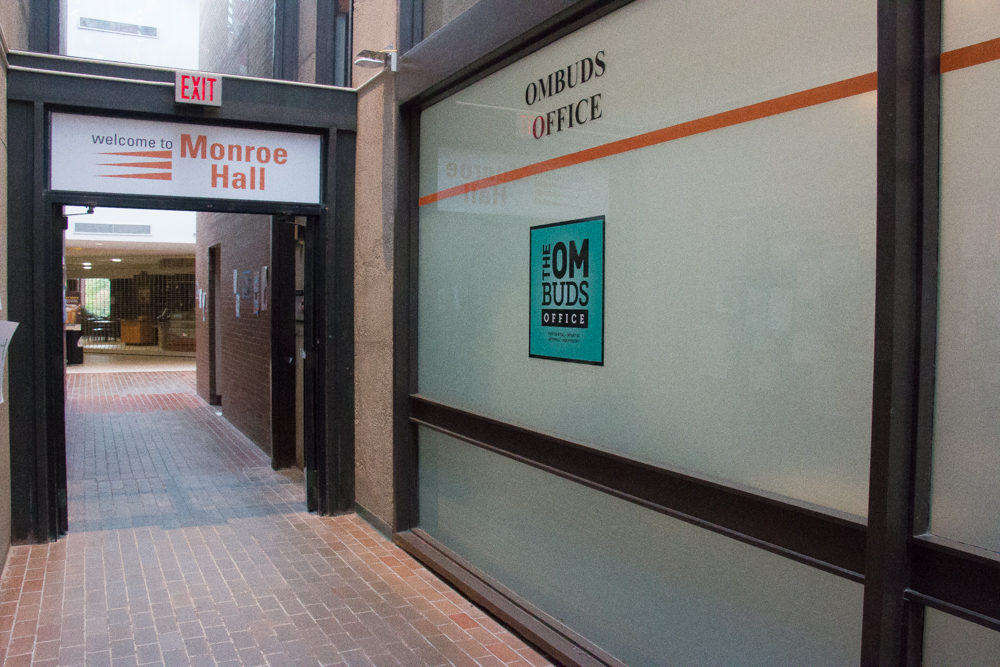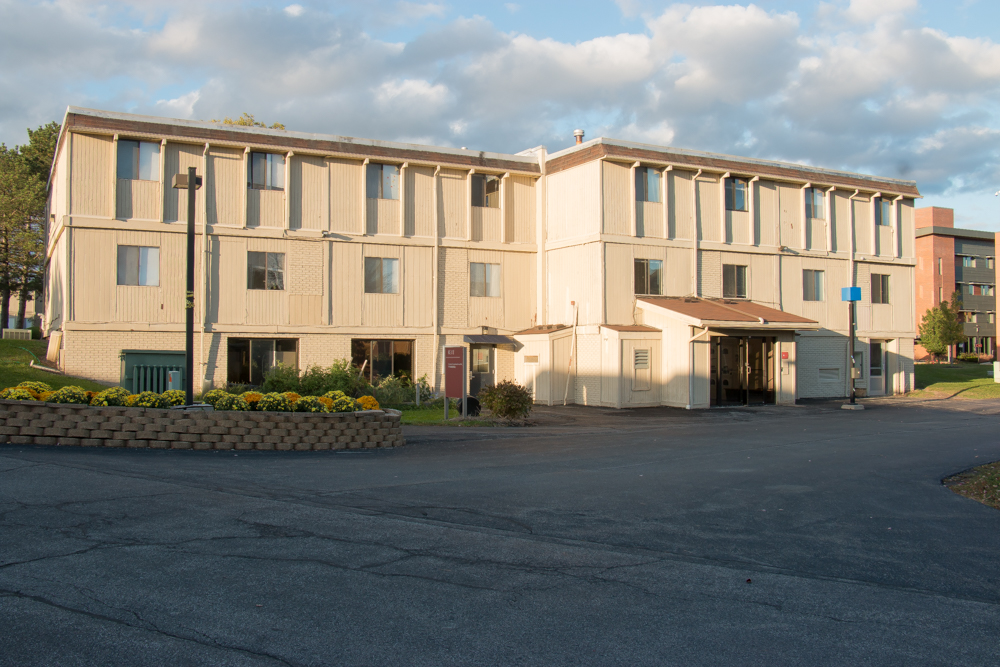Have you been struggling in your class? Having arguments with your roommates? Hungry for something other than macaroni and cheese? There are some resources on campus available to students that you may not even know about. The Academic Success Center, the Ombuds Office and RIT Foodshare are all resources that aid struggling students.
Academic Success Center
The Academic Success Center (ASC), formerly the Academic Support Center, aids students in the transition to adult learning. They are located in Monroe Hall on the second floor, above Artesano Bakery and Café.
Cha Ron Sattler-LeBlanc, senior director of the ASC, explained, “We’re in the business of helping students learn how to learn.”
She described the differences between the kind of learning in middle school and high school, and how they differ in college. Many students who never had to study in high school find that they need to in college, but they don’t know how. This is when ASC comes into play.
The ASC is split into two main parts. First is learning strategies and study skills; the ASC offers both peer-led and academic coaching as well as success courses. One of their most popular is the “Essential Study Skills” class. Success courses are not for credit, but are covered by student fees. This means that they are available at no additional cost.
Second is content specific support, and it covers mostly math and science courses. They offer two study centers: Bates located in Thomas Gosnell Hall and Sol located in Sol Heumann Hall. They also offer assessments to determine the needs of incoming students. The most well-known of their offerings is Supplemental Instruction (SI); they take historically challenging classes and have a student who has successfully completed these classes help current students.
The ASC has over 80 student employees who help support learning at RIT.
Sattler-LeBlanc added, “Some students may think that if they are coming to seek support here that there is something wrong with them, or they are not smart. I am actually not a fan of the word 'smart'. I think a much better term is the phrase 'I’m a good learner' or 'I love to learn'. In the end, isn’t learning why we all came to RIT?"
The ASC relies heavily on word of mouth, as well as student employees functioning as ambassadors to make their services known to the RIT learning community. More information can be found on their website.
The Ombuds Office
The Ombuds Office is located in between the SAU and Monroe Hall. They are a safe and confidential place for any member of the RIT community to bring any problem, dispute or question. Dr. Barry Culhane originally established the Ombuds office 30 years ago.
Joe Johnston, the ombudsperson, explained their mission, “Conflict resolution tools and support for students, faculty and staff at RIT."
Lee Twyman, recently retired ombudsperson, is credited by Johnston as a huge benefactor to the success and centralization of the Ombuds Office. Previously, there had been Ombuds for multiple groups, but not a centralized office that served the RIT community at large.
Ashley Meyer, the associate ombudsperson, said, “We really try to make sure we have a pulse on what’s going on in the RIT Community."
Meyer described the Ombuds Office’s wide range of services. They help students talk to different offices at RIT, talk to offices on behalf of students, provide mediation and attend shared governance meetings.
Johnson touched upon their confidential status.
He said, “The confidentiality is a really big part. We are really the only on-campus confidential resource for faculty and staff. We are one of a few offices available for students.”
Many students, faculty or staff may be unsure or unaware of what policies or protections are in place for them on campus. The Ombuds Office is open and willing to answer those questions.
Johnston also mentioned that while the Ombuds Office does not collect information about individuals, they record trends of prevalent issues and they report them back to the university. For example, last year a number of people came into the office regarding the academic dishonesty policy, and this year the Academic Senate will discuss the issue.
One thing to mention is that the Ombuds office does not have the power to make policy changes.
Dawn Sullivan, the Ombuds program coordinator, said, “I think that an important part that can sometimes get muddied is that we don’t have any formal power to make change, but we can bring forth trends that we can identify."
Currently, Ombuds also relies heavily on word of mouth to spread information about their office and its services. They also do presentations to different divisions on campus and open houses. New this year, they are expanding and doing work with RIT 365, formally known as Year One, to inform freshmen about their services.
To learn more or contact the Ombuds office, students can go into the office or visit their website.
RIT Foodshare
RIT Foodshare was founded by Rebecca Johnson, the wife of former university president William W. Destler five years ago. She saw both food waste from events on campus and students who were not receiving the food and nutrition they needed. She created the RIT Foodshare Initiative to help alleviate food insecurity on campus. They are a part of the College and University Foodbank Alliance and are free to all members of the RIT Community.
Johnson worked with an RIT marketing class to create the Foodshare’s Facebook Page which is still used today; it has around 4,000 members. The current Foodshare center and pantry location at 113 Kimball Drive was opened shortly after.
Matt Ryan, Foodshare coordinator and RIT student pursuing a master's degree in Sustainable Engineering explained more on food insecurity.
He said, “Food insecurity is an interesting definition. Basically, it is reliable, nutritious food. It’s not just having mac and cheese every day. You’re still food insecure at that point because you don’t have nutritious food.”
RIT Foodshare is entirely donation driven. Everything provided at RIT Foodshare is either given by students, faculty, staff or corporate sponsors. In September, they saw a record 1,800 visits.
To get in touch with RIT Foodshare, students can go to the location at 113 Kimball Drive or visit the RIT Foodshare Facebook page.










